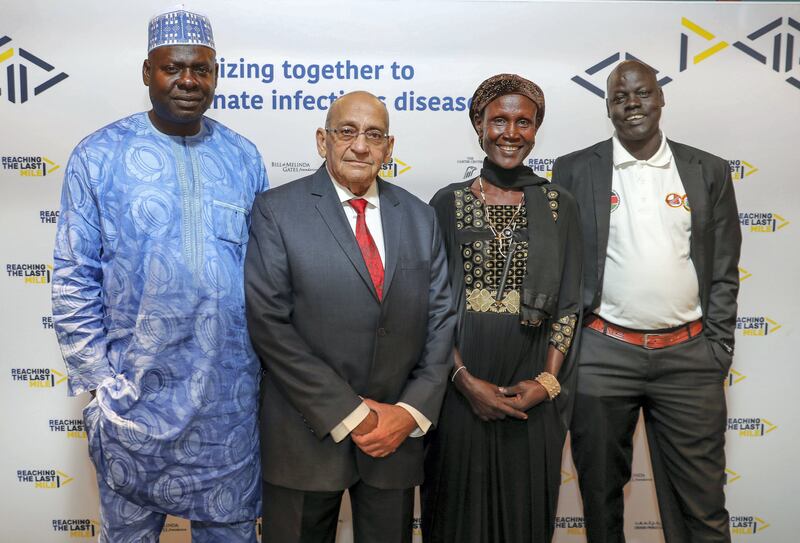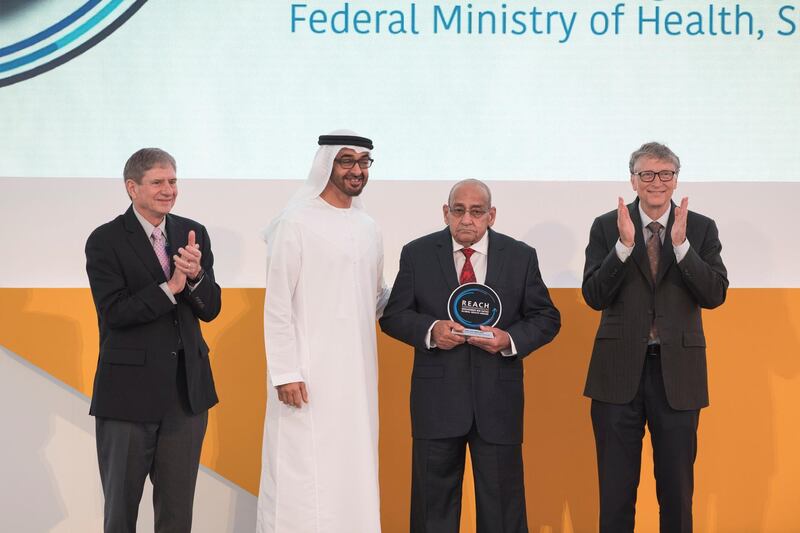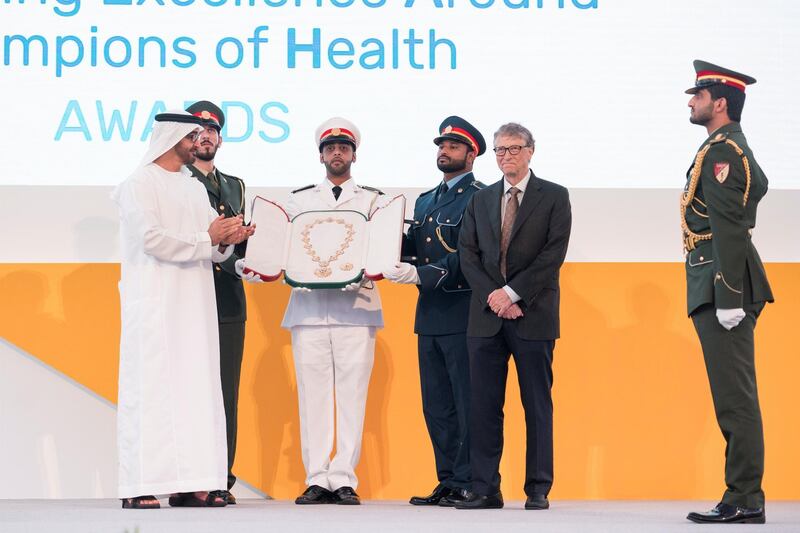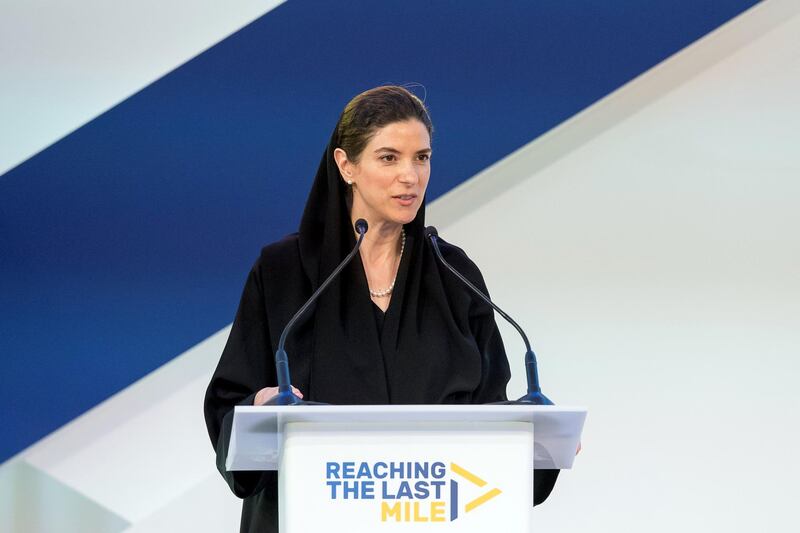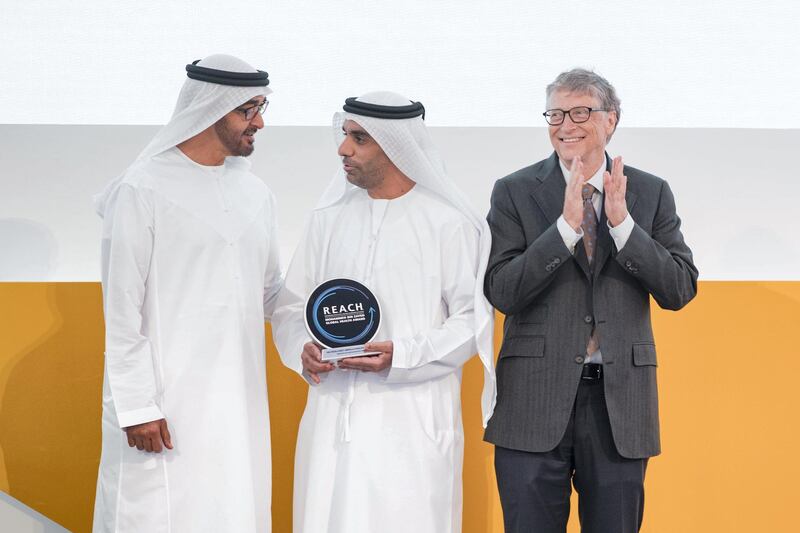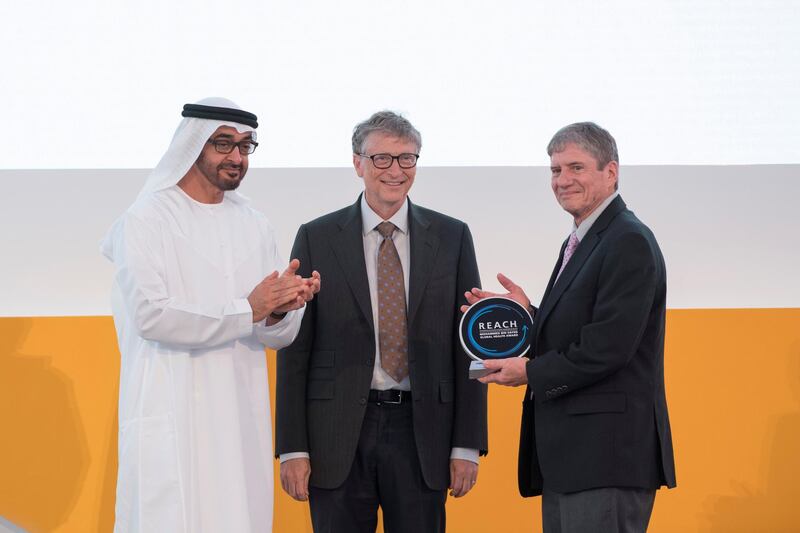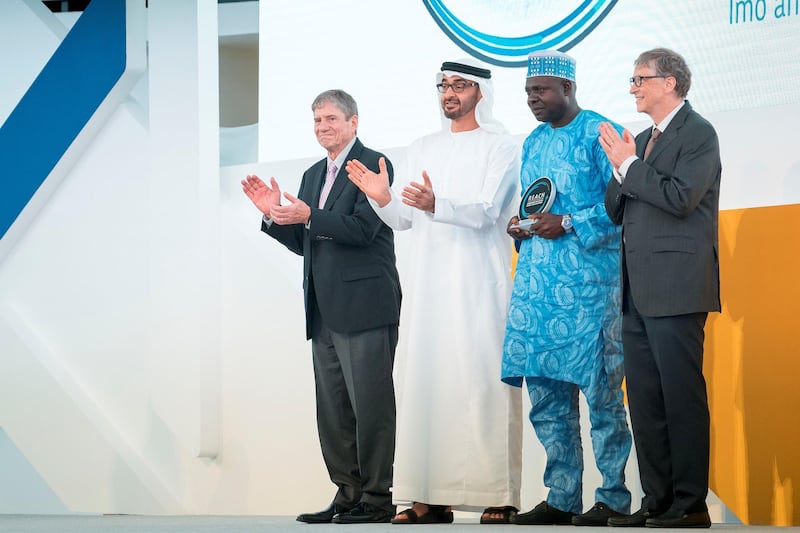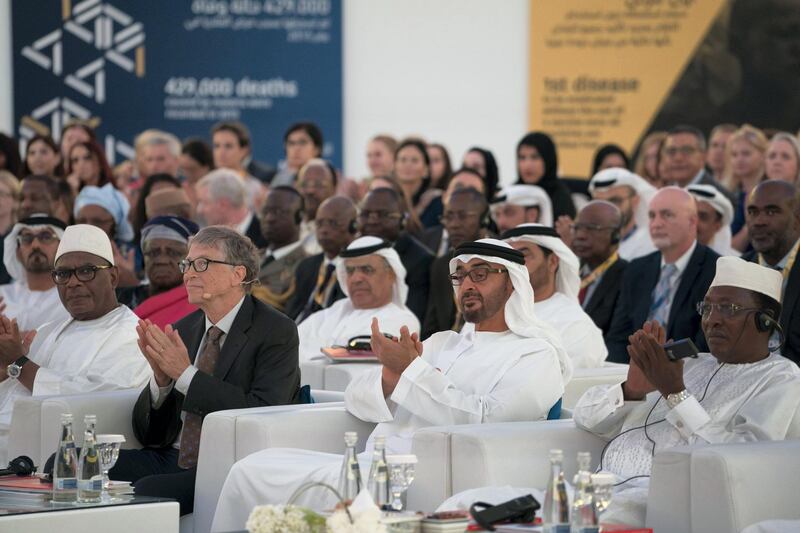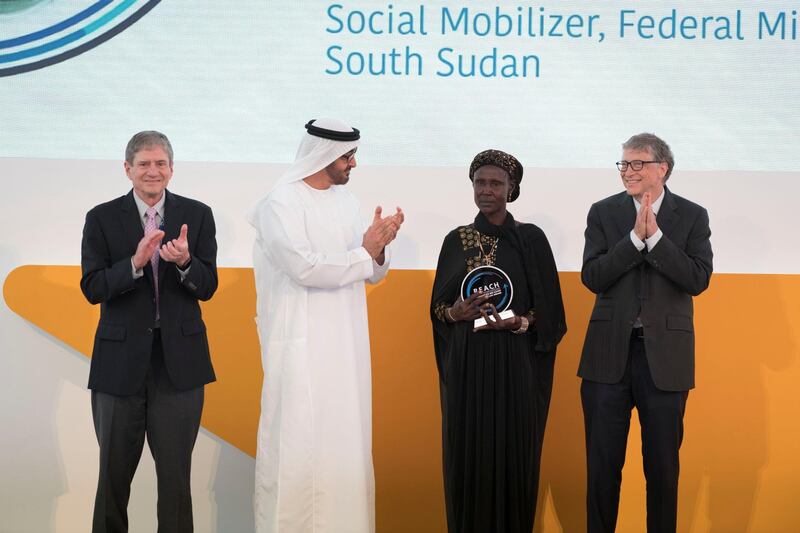Former US President Jimmy Carter is among the first receipts of a new award for those who have made outstanding contributions to fighting infectious diseases.
President Carter was named as the winner of the lifetime achievement award in a ceremony at the Reaching the Last Mile forum in Abu Dhabi on Wednesday.
The first REACH (Recognising Excellence around Champions of Health) Awards honour men and one women for their efforts to combat Guinea worm disease, which is poised to become only the second human disease to be eradicated, after smallpox.
The Carter Centre has been one of the leaders of the campaign to rid the world of the disease, which is caused by a parasite in water and leaves suffers in excruciating pain.
Only nine cases have been recorded this year, compared with over three million in 1986. Once widespread across parts of Africa, it is now found only in a handful of villages in Chad.
_________________
Read more:
[ Reaching the Last Mile: New $100m fund announced in Abu Dhabi ]
[ Malaria kills two children every minute - and experts fear it'll worsen without more action ]
_________________
The citation for President said that his, "outstanding leadership has brought the world's attention to a disease that afflicts the poorest and most marginalised people".
Although unable to attend in person, President Carter recalled his first visit to Abu Dhabi in 1991 when Sheikh Zayed made a donation to his foundation.
“It was an Important visit for me and for the millions of people who no longer need to fear Guinea worm disease, river blindness along with polio and malaria because of the generosity of his highness Sheikh Zayed and his family,” he said.
Also among the winners was Regina Lotubai, who collected the Unsung Hero Award from the Crown Prince, after making her first flight in an airplane to travel to the UAE.
She uses song to educate villagers in South Sudan about disease transmission and prevention.
A former sufferer, she once had at least ten worms in her body, and has created both songs and dances, teaching them to other volunteers to spread her message.
Her success as a woman is all the more remarkable in what is a highly patriarchal society, according to Makov Yibi, of the South Sudan Ministry of Health.
“It was remarkable to see her leading the men in singing her song under what is called the elders’ tree,” he said.
“I’m told that women normally do not dare to encroach the elders’ space, because this is where the men discuss very important issues of the village and community.
“She has actually broken the taboo in a positive way, and the men join her in the singing.”
Speaking through a translator, Ms Lotubai said: “This is very serious disease and there are many cases in women. It’s big challenge for ladies. You cannot fetch water and cannot even cook for your children.”
Daniel Madit, a field officer in South Sudan, was also honoured as an Unsung Hero, for continuing his work even after international aid organisations evacuated their staff during the most dangerous and unstable periods in the country’s recent history.
He became aware of the terrible cost of the disease in 1998, when he was 15 and his only sister became infected.
"Our sister was always limping and crying and that’s when it came to my mind that this is a very bad disease," he said.
A Special Achievement Award was given to Abdullah Khalifa Al Ghaffi, the director of the United Arab Emirates Pakistan Assistance Programme,
Pakistan is one of only two countries where cases of polio are still recorded today. The UAE has been central to vaccination efforts, treating tens of thousands of children and taking the country to the brink of polio elimination.
The Courage Award was presented to Dr Nabil Alla, the former National Programme Coordinator for Sudan’s Health Ministry.
He was the organiser of a conference that led to a six month ceasefire in the Sudan civil war. It allowed health workers to gain access to areas infected with Guinea worm that had previously been unreachable during the conflict.
Dr Ella said he was “thrilled and honoured” with the award and said he hoped it would, "encourage people to continue and other to join the next programme".
“We cannot say that it is a one man show,” he added.
“It is the efforts of many many people starting from the high technical officers coming down to the field officers, the village volunteers even to the drivers. It is the efforts of thousands of thousands of people.”
The Last Mile Award was given to Dr Adamu Sallau, who has worked for the Carter Centre in Nigeria from 1994, until Guinea worm disease was eliminated in the country ten years ago.
Dr Sallau is credited with preventing the disease from spreading to neighbouring countries, and setting up mobile containment centres in endemic hotspots. He is now working to eliminate other tropical diseases in Nigeria, including river blindness.
His work has led him deep into rural Nigeria that are at risk attack and kidnap by Boko Haram terrorists, and in one case, a marauding lion.
“I saw the very last case in my country Nigeria,” Dr Sallau said.
“It's a thing of joy to be marking the extinction of Guinea worm disease in my country.”
